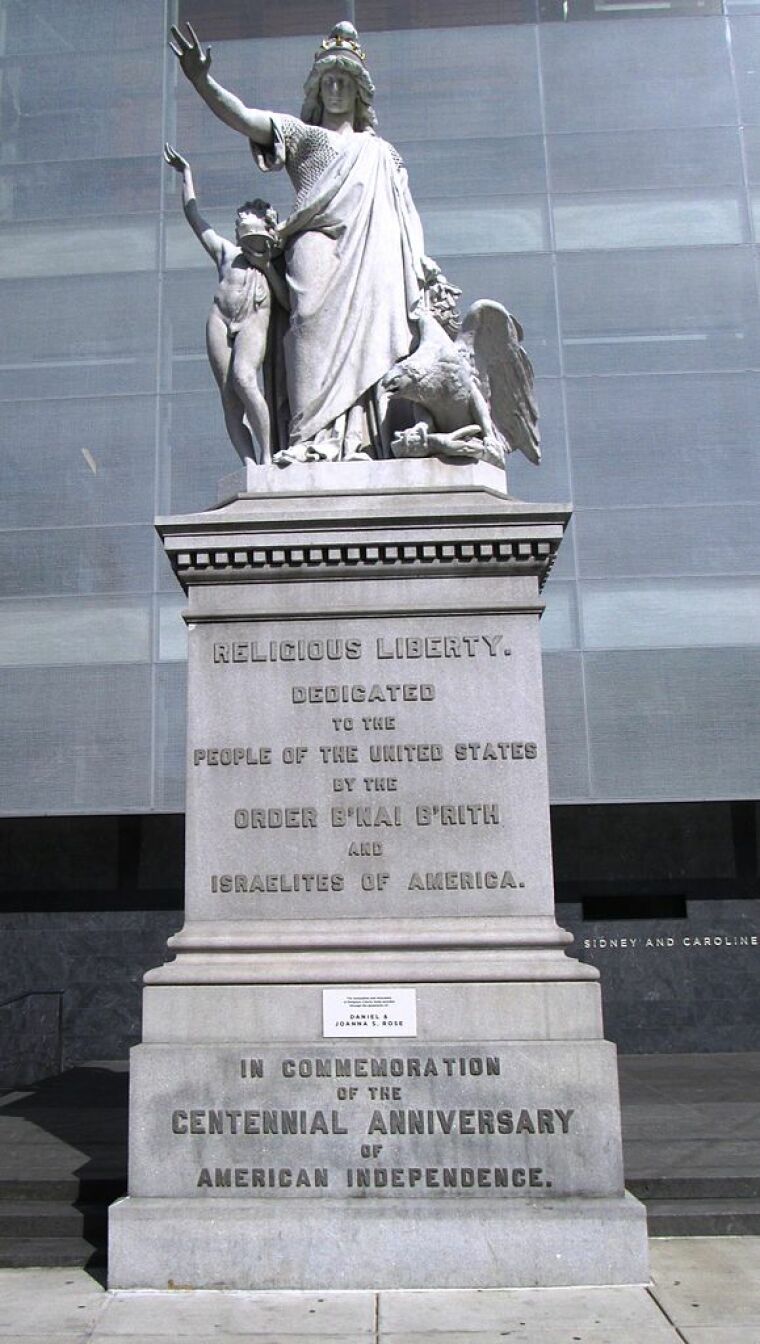'Religious liberty' is code for Christian supremacy, claims U.S. civil rights commissioner
The chairman of the U.S. Commission on Civil Rights (USCCR) released a report on Thursday stating that the words "religious freedom" and "religious liberty" have become mere code words for intolerance and Christian supremacy.
The report titled "Peaceful Coexistence: Reconciling Nondiscrimination Principles with Civil Liberties," signed by USCCR chairperson Martin R. Castro, highlighted the conflict between religious liberty and non-discrimination laws. Most of the conflicts mentioned in the report are rooted in issues related to sexual orientation and gender identity.

"The phrases 'religious liberty' and 'religious freedom' will stand for nothing except hypocrisy so long as they remain code words for discrimination, intolerance, racism, sexism, homophobia, Islamophobia, Christian supremacy or any form of intolerance," said Castro in the report.
Gail Heriot, a member of the USCCR, disagreed with the majority opinion presented in Castro's report. "I'm troubled by the growing attitude that somehow anti-discrimination laws trump everything. We live in a more complex world than that," Heriot told the Washington Times.
The report asserted that religious exemptions to nondiscrimination laws are infringing on the civil rights of protected classes.
In an interview with the The Christian Post, Brian Wash, president of Civil Rights Research Center, remarked that freedom of religion and conscience are also civil rights.
The report also emphasized that the 1993 Religious Freedom Restoration Act (RFRA) "protects only religious practitioners' First Amendment free exercise rights, and it does not limit others' freedom from government-imposed religious limitations under the Establishment Clause."
Douglas Laycock, a religious liberty expert and a professor at the University of Virginia Law School, said that the USCCR has not presented a valid reason why faith-based organizations or businesses cannot be protected under the RFRA.
"This report gives no reason for preferring the rights of the same-sex couple, except that a majority of the [commission] chose up sides," said Laycock to The Washington Times.
Laycock was the lead counsel for the plaintiff in the Hosanna Tabor case. The case involved a teacher who was fired by the Hosanna-Tabor Evangelical Lutheran Church after receiving a narcolepsy diagnosis. The U.S. Supreme Court ruled in favor of the church in 2012 stating that anti-discrimination laws do not protect church employees involved in religious duties.
 Christians don't have to affirm transgenderism, but they can’t express that view at work: tribunal
Christians don't have to affirm transgenderism, but they can’t express that view at work: tribunal Archaeology discovery: Medieval Christian prayer beads found on Holy Island
Archaeology discovery: Medieval Christian prayer beads found on Holy Island Presbyterian Church in America votes to leave National Association of Evangelicals
Presbyterian Church in America votes to leave National Association of Evangelicals Over 50 killed in 'vile and satanic' attack at Nigerian church on Pentecost Sunday
Over 50 killed in 'vile and satanic' attack at Nigerian church on Pentecost Sunday Ukrainian Orthodox Church severs ties with Moscow over Patriarch Kirill's support for Putin's war
Ukrainian Orthodox Church severs ties with Moscow over Patriarch Kirill's support for Putin's war Islamic State kills 20 Nigerian Christians as revenge for US airstrike
Islamic State kills 20 Nigerian Christians as revenge for US airstrike Man who served 33 years in prison for murder leads inmates to Christ
Man who served 33 years in prison for murder leads inmates to Christ


 Nigerian student beaten to death, body burned over ‘blasphemous’ WhatsApp message
Nigerian student beaten to death, body burned over ‘blasphemous’ WhatsApp message 'A new low': World reacts after Hong Kong arrests 90-year-old Cardinal Joseph Zen
'A new low': World reacts after Hong Kong arrests 90-year-old Cardinal Joseph Zen Iran sentences Christian man to 10 years in prison for hosting house church worship gathering
Iran sentences Christian man to 10 years in prison for hosting house church worship gathering French Guyana: Pastor shot dead, church set on fire after meeting delegation of Evangelicals
French Guyana: Pastor shot dead, church set on fire after meeting delegation of Evangelicals ‘Talking Jesus’ report finds only 6% of UK adults identify as practicing Christians
‘Talking Jesus’ report finds only 6% of UK adults identify as practicing Christians Mission Eurasia ministry center blown up in Ukraine, hundreds of Bibles destroyed: 'God will provide'
Mission Eurasia ministry center blown up in Ukraine, hundreds of Bibles destroyed: 'God will provide' Church holds service for first time after ISIS desecrated it 8 years ago
Church holds service for first time after ISIS desecrated it 8 years ago Burger King apologizes for 'offensive campaign' using Jesus' words at the Last Supper
Burger King apologizes for 'offensive campaign' using Jesus' words at the Last Supper Uganda: Muslims abduct teacher, burn him inside mosque for praying in Christ’s name
Uganda: Muslims abduct teacher, burn him inside mosque for praying in Christ’s name